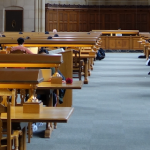Every year university ranking guides become bestsellers. But just as certain as these guides will remain popular among students bound for university and graduate school, they will continue to rouse the contempt of some educators, students, and observers of higher education, who mistrust the methods and motives of the prevailing university rankings.
There are many published arguments against university rankings. One particularly sharp critique was offered by Bruce Gottlieb in Slate magazine in 1999. Gottlieb accused U.S.News & World Report -- perhaps the most influential publisher of university rankings in the United States of introducing dramatic (and artificial) changes to its annual ranking of Americas best universities as a way of keeping reader interest and selling magazines.(1) U.S.News editors Brian Duffy and Peter Cary promptly issued a rebuttal -- also published in Slate -- addressing Gottliebs charge of opportunistic fiddling with the rankings.(2)
Without doubt, legal education is one of the main battlegrounds of university rankings. Because of high student enrolment in law programs worldwide, magazines and newspapers that publish rankings commit a sizable share of their issues to discussing law schools. And just as Bruce Gottlieb lamented a certain horse race anticipation surrounding the U.S.News university rankings, there is also plenty of curiosity each year about which law school programs will be top-ranked.(3)
For the most part, the top-ranked law schools remain the same year after year. Predicting a winning trifecta of U.S. law schools is usually a matter guessing exactly where in the top five Harvard, Yale, Stanford, and Columbia law schools will place. And if predicting Britains top-ranked law schools were a gambling event, the odds would heavily favor Oxford, Cambridge, and various University of London programs year after year.
Although U.S. News editors suggest that consistency among the top universities is proof that their rankings are not arbitrary, critics continue to take issue with the very concept of university ranking.
The Association of American Law Schools (AALS), a non-profit organization with a membership of over 160 law schools in the United States, has long been hostile to published law school rankings. In a joint-statement adopted with other leading legal education organizations, the AALS concluded that any ranking of law schools based on survey data must be meaningless or grossly misleading.(4)
Where exactly do critics believe published rankings fall short? In 1997, Stanford University President Gerhard Casper attacked the U.S.News rankings, claiming that the survey data it was based on could not appreciate the diversity of universities across the country.
The strength of the American system of higher education lies in the diversity of institutions available to students, said Casper. Each has something to offer, and no standardized lists of best colleges can begin to do justice to what is best for a given student.(5)
But however meaningless or dubious some critics believe rankings to be, they continue to influence the decisions of thousands of prospective law students who consult them year after year.
Along with providing a variety of data about law schools, rankings such as those published by the U.S. News, the London Times, and the Guardian, can give prospective students a comparative overview of law programs. Rankings can also help students get an idea about a law schools national and international reputation. After all, reputation is a sometimes-nebulous characteristic of a law school that has nonetheless real, concrete effects on the resumes and earning power of its graduates.
You can read more about law school rankings and the rankings controversy by following the links below:
- LLM GUIDE Law School Rankings Directory
- US News Ranking: Chart of the Past Decade (1997-2006)
- Bruce Gottliebs 1999 Criticism of U.S.News & World Report Rankings in Slate
- U.S.News & World Report Editors Rebuttal to Gottliebs Criticism of Rankings
- University of Illinois Urbana-Champaign Education and Social Science Library Discussion & Bibliography of Rankings Controversy
References:
- Bruce Gottlieb, "Cooking the School Books, Slate (September, 1999).
- Brian Duffy and Peter Cary, "Dissension in the Rankings: U.S. News Responds to Slates "Best Colleges Story, Slate (September 1999).
- Gottlieb.
- AALS "Statement Regarding Law School Rankings (http://www.aals.org/about_handbook_sgp_ran.php).
- Gerhard Casper, "An Alternative to the U.S.News & World Report College Survey, (1997) (http://www.stanford.edu/dept/pres-provost/president/speeches/970418rankings.html).
Image: "Racing at Arlington Park" by Paul Kehrer / Creative Commons










